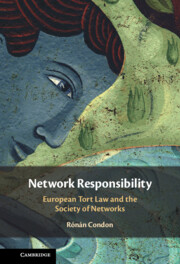Conclusion
Published online by Cambridge University Press: 14 July 2022
Summary
In this book, it has been argued that tort law in the nation-state context has evolved two primary normative models of liability, namely individual responsibility and organisational liability. Whereas the former rests on subjective fault, albeit objectively defined (community standard of conduct) the latter rests on liability for typical and, therefore, foreseeable risks. Both forms of liability developed within the nation-state and apply with modifications to both private parties and the state. Both forms of liability additionally are second-order normative models of liability in an acentric society. A ‘top-down’ public law understanding of the law overestimates this significantly. By contrast, private law with its emphasis on private ordering and how the law tracks rather than determines ‘the reasonable expectations of honest men’ better reflects the relationship between legal system and society as a plurality of normative orders. In the society of individuals, will and fault reflect this acentricity and constitute its legal buttress. They are tied to the knowledge base of society via bridging concepts such as reasonableness. However, when the knowledge base of the society of individuals ruptured, caused by the rise of organisations, the law was reshaped in light of these organisational forms taking advantage of their capacity for planning and collective action. Reconciling groups, as placeholders for different functional discourses, was in the heyday of the nation-state the role of the state. In systems theory terminology, the state’s role is that of mediator between different functional systems or different normative orders. The law was an important means of ensuring the positive integration society by mediating these different normative orders.
- Type
- Chapter
- Information
- Network ResponsibilityEuropean Tort Law and the Society of Networks, pp. 217 - 222Publisher: Cambridge University PressPrint publication year: 2022



